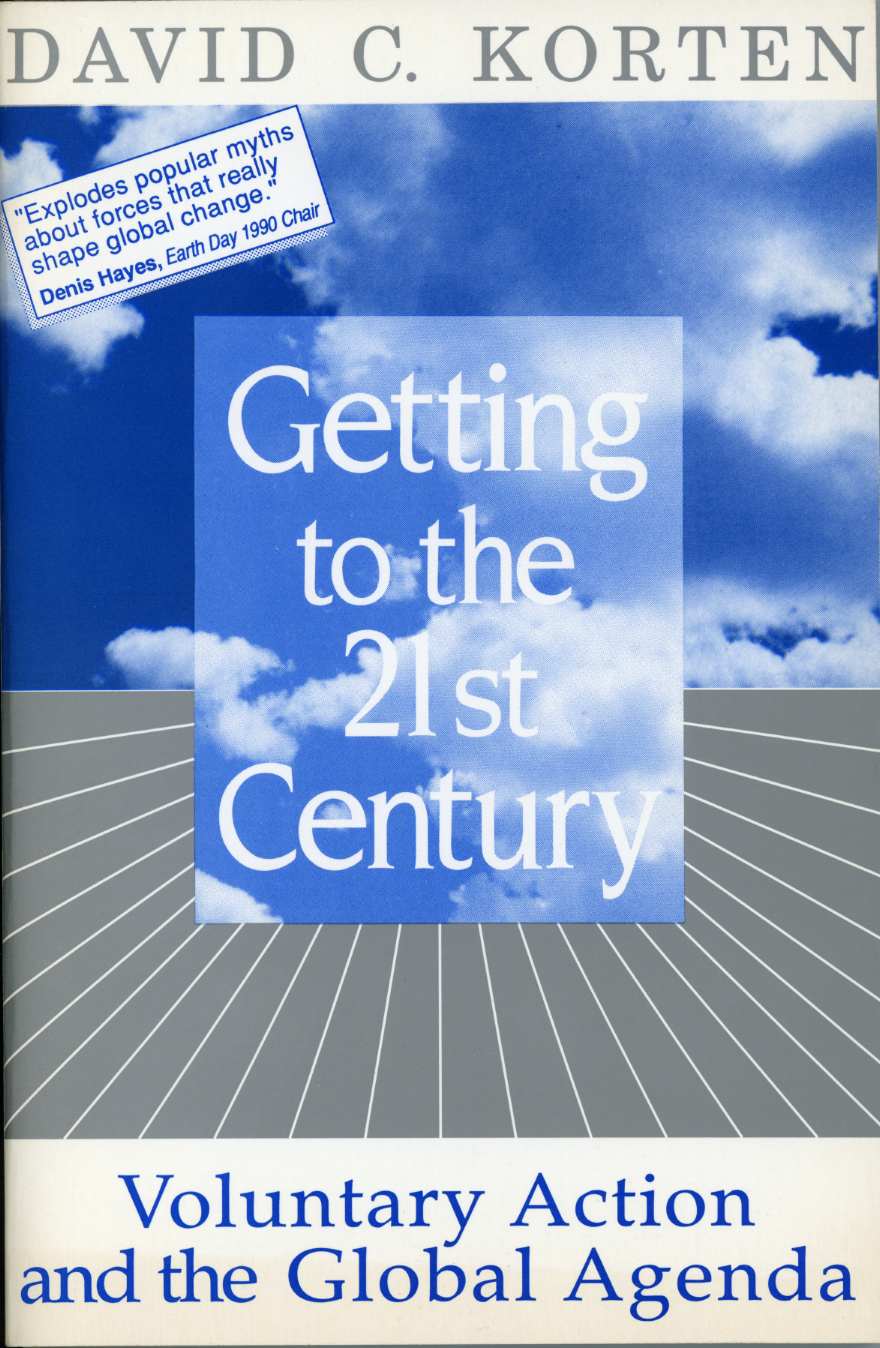A damning critique of the development policies, ideology and infrastructure which have spread like an infection over the world… a useful contribution to the environment and development debate and the recommendations for voluntary agencies, North and South, are worth reading.
—The Ecologist
Table of Contents
Introduction: We Have a Problem
View from the Grassroots
A Need for Change
Overview
Part I: The 1980s: An Awakening
Chapter 1: Decade of Crisis
Poverty
Environment
Social Integration
Chapter 2: Decade of Denial
Alleviating Poverty by Helping the Rich
Providing Palliatives as a Substitute for Environmental Action
Increasing Military Expenditures to Reduce Violence
Chapter 3: Decade of Opportunity
Demilitarization and East-West Cooperation
Environmental Action
People Power
Information Intensive Technologies
Part II: Toward a Just, Sustainable and Inclusive Society
Chapter 4: Believing Is Seeing
Ideas Change History
From Cowboys to Astronauts
Historical Precedent
Chapter 5: Cowboy Economics: the Growth-Centered Vision
Central Role of Capital Investment
Policy Orientation
Acting as If..
Value Orientations
The Basic Needs Strategies
Chapter 6: Reviving the Colonial Economy
Economic Enclaves
The Dominant State
Patronage and Corruption
Role of International Development Assistance
The Distortions of Structural Adjustment
Putting International Banks First
Chapter 7: the People-Centered Vision: An Economics for Spaceship Earth
What is People-Centered Development?
Assumptions of Fact
Policy Preferences
Transformation as the Agenda
Chapter 8: Equity-Led Sustainable Growth: From Vision to Strategy
The Asian Tigers Revisited
An Equity-Led Sustainable Growth Strategy
Building Political Will
An Inclusive People’s Movement
Part III: Voluntary Organizations: Development Roles and Strategies
A Limited Vision
A Critical Self-Assessment
Chapter 9: Voluntary Organizations Are different
The prince, the Merchant and the Citizen
People’s Organizations: The Fourth Sector
Public Service Contractors
Hybrid Organizations
The Decade of Voluntarism
Chapter 10: From Relief to People’s Movement
Importance of a Development Theory
Three Generations of Voluntary Development Action
The Fourth Generation
Part IV: The 1990s Part: From Growth to Transformation
Chapter 11: A Spaceship Has No Lifeboat
Why International Assistance
Official Assistance: More than Money
Private Voluntary Assistance: More than Relief
From Public Handouts to Mutual Empowerment
Public Funding of Voluntary Action
Chapter 12: End of the Dominant State
People Power and the Citizen-Prince
Lessons for the South
National Sovereignty and the Global Citizen
Chapter 13: Agenda for a Society in Transition
Reconciliation and Demilitarization
Lifestyles and Technologies
Spiritual Development
The Family
Political Democratization
Economic Democratization
Trade and Investment Relations
Conclusion: End of Innocence
From Prodigal Child to Steward
Applying Our Global Intelligence
International NGOs as Resources for Change
Appendix A The Manila Declaration on People’s Participation and Sustainable Development
Appendix B Study Group Discussion Topics
Appendix C NGO Self-Assessment Questions
Appendix D International Public Financial Transfers

